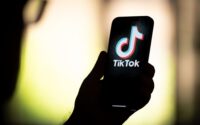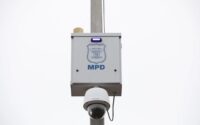Apple reportedly mulls low-cost MacBook to rival Chromebooks
Apple is reportedly working on a low-cost MacBook to compete with Google’s Chromebook — which costs a fraction of the price of the Apple device and has come to dominate the laptop market.
The Chromebooks — which sell for around $149, compared to the MacBook’s starting price of $1,599 — were snapped up in droves by school districts for their students after COVID lockdowns led to remote classwork.
As of early 2022, Google reported that over 50 million students and teachers were using Chromebooks, prompting the tech giant to release a new line of Chromebook devices — as well as a repair program — built entirely for education.
The prohibitive cost of MacBooks, meanwhile, have prevented most schools from purchasing them for its students.
However, there are 10 million schools around the world utilizing Apple’s iPads, according to education analyst nonprofit GreatSchools.
Apple’s purported low-cost MacBook will be made from “different materials” than existing models to lower the minicomputer’s cost and become more appealing to the education sector, according to Digitimes.

Sources told the publication that a cheaper version of Apple’s MacBook could be released as early as the second half of 2024.
Wedbush Securities managing director Dan Ives told The Post that it “was a matter of when, not if, Apple aggressively goes after the Chromebook market with a low-cost MacBook.”
“The education market has been a tough nut to crack because it’s really owned by Google and Microsoft, but Apple’s playing the long game over the next three, five, seven years,” Ives added.
“Many consumer households are Apple — they’re everywhere else except the classroom. This is te last frontier for them to go after consumers.”
Representatives for Apple did not immediately respond to The Post’s request for comment.
Apple is also struggling with its best-selling iPhone as Android rivals continue to gain ground in the mature market.
The Cupertino, Calif.-based tech colossus also plans to release its Vision Pro mixed-reality headset to consumers in early 2024 — more than six months after it was announced in June — and is reportedly spending more on artificial intelligence in an effort to win back sales.
In the three-month period ended July 1 — Apple’s third quarter — it recorded a revenue of $81.8 billion, a 1.4% decline from Q2 and a year-over-year drop of 3%.

Weaker iPhone sales were balanced by strong sales in the services segment that contains Apple TV+ and by sales in China that grew 8% year over year.
The tech giant’s Chief Financial Officer Luca Maestri said on a conference call last month that Apple’s performance would be similar in its final quarter of the year.
If Maestri is correct, an additional drop would spell the largest downward streak Apple’s seen in two decades.
In June, Apple became the first company in history to hit a market capitalization of $3 trillion.

However, it’s stay as the world’s only $3 trillion company was short-lived, as it slipped to $2.86 trillion following the news that it experienced its third consecutive quarter of declining sales.
As of Tuesday morning, shares of Apple were down nearly 1%, to $188.06. Its market cap was a still-robust $2.94 trillion.


